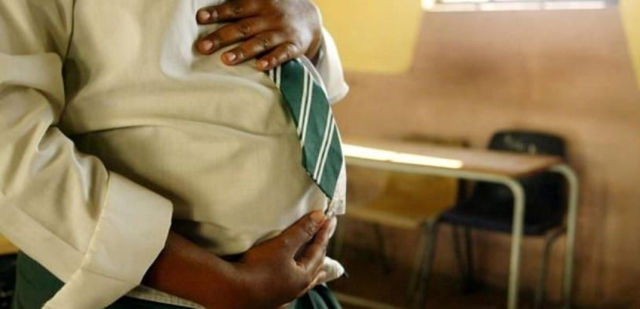
COVID-19 lockdown data shows young girls are better and safer at schools
Kyotera, Uganda | THE INDEPENDENT | Nearly 80% of Ugandans are worried about the rate of teenage pregnancy as the country battles the coronavirus pandemic.
The findings of the survey released by the Twaweza in the presence of the Health Ministry officials indicate that eight out of ten citizens (79%) say teen pregnancy has become a bigger problem during the Coronavirus pandemic, and half say physical (51%), emotional (51%) and sexual (46%) violence has got worse.
While Twaweza’s Sauti Za Wanainchi survey was limited to Kampala, Kyotera and Tororo, if reflects concerns around the country right from the first lockdown.
Marie Nanyanzi, a senior Program officer in charge of Twaweza Sauti Za Wanainchi survey says citizens are also reporting an increase in alcohol consumption (58%) and drug abuse (49%).
According to Nanyanzi, the data being shared were collected in December 2020 from 1,590 respondents and from 768 residents of Kampala, 639 residents of Kyotera and 622 residents of Tororo in June 2021.
Assistant Commissioner Reproductive and Infant Health at the Ministry of Health ministry, Dr. Richard Mugahi said the COVID-19 pandemic has disrupted service delivery affecting mothers, children and teenagers. He says the issue of teenage pregnancies has become a big challenge across the country.
Mugahi says that the COVID-19 lockdown data shows young girls are better and safer at schools. The Twaweza study almost tallies with one conducted by Centers for Disease Control and Prevention in Uganda.
The finding to the just concluded 11th International AIDS Society Conference on HIV Science (IAS 2021) indicate rape and sexual violence increased among women and girls in Uganda during the COVID-19 pandemic.
Among the highlights was that uptake of post-exposure prophylaxis (PEP) decreased. Ugandan women and girls may have had increased HIV exposure during the COVID-19 pandemic.
CDC’s Uganda Behavioral Scientist , Rose Apondi and others found that the COVID-19 pandemic is associated with increased gender-based violence perpetration.
They said in Uganda, COVID-19 restrictions caused a lapse in gender-based violence services, which were not initially prioritised as essential health services during COVID-19 restrictions.
Apondi says for the country to end the high wave of teenage pregnancies, it needs to take why she calls a multi-pronged approach including involvement of parents, cultural leaders and the fact that schools seemed to be more protective to the teenage girls.
Her team found in the six months before COVID-19, 593 girls under the age of 18 reported sexual violence compared to 860 girls in six months during COVID-19.
According the report, the odds of reporting sexual violence were 1.3 times higher during COVID-19 compared to the preceding six months. There was also a 17% increase in reported teen pregnancy during the pandemic.
Gender-based and sexual violence often go unreported, experts say, so the actual increases may have been higher, since this study relied on reports to healthcare workers or a helpline.
The authors call for flexible and adaptive gender-based violence services to be prioritized during pandemics, especially during lock downs.
Kamwenge Woman Member of Parliament, Dr Sylvia Bahireila Tumwekwase says the fact there has been an increase in teenage pregnancies during the COVID period is an indicator that there are gaps in health service delivery.
Tumwekwase, who has previously worked Assistant District Health Officer in Child of Child and maternal health, says staffing levels at districts needs to be urgently addressed.
***
URN
 The Independent Uganda: You get the Truth we Pay the Price
The Independent Uganda: You get the Truth we Pay the Price



